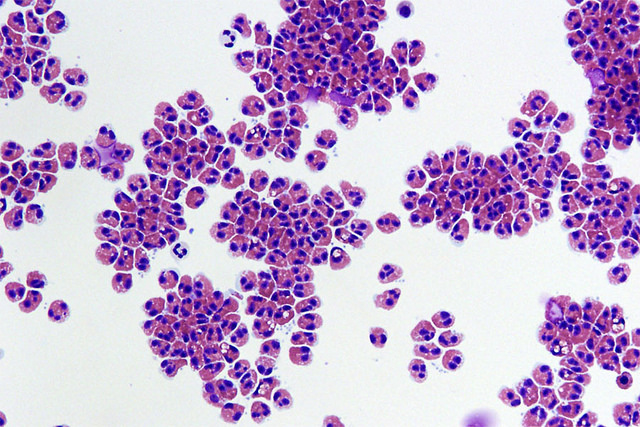The benefit of catheter-based reperfusion for acute myocardial infarction (MI) is limited by a 5 % to 15 % incidence of in-hospital major ischemic events, usually caused by infarct artery reocclusion, and a 20 % to 40 % need for repeat percutaneous or surgical revascularization. Platelets play a key role in the process of early infarct artery reocclusion, but inhibition of aggregation via the glycoprotein IIb/IIIa receptor has not been prospectively evaluated in the setting of acute MI.
The benefit of catheter-based reperfusion for acute myocardial infarction (MI) is limited by a 5 % to 15 % incidence of in-hospital major ischemic events, usually caused by infarct artery reocclusion, and a 20 % to 40 % need for repeat percutaneous or surgical revascularization. Platelets play a key role in the process of early infarct artery reocclusion, but inhibition of aggregation via the glycoprotein IIb/IIIa receptor has not been prospectively evaluated in the setting of acute MI.Patients with acute MI of <12 hours' duration were randomized, on a double-blind basis, to placebo or abciximab if they were deemed candidates for primary PTCA. The primary efficacy endpoint was death, reinfarction, or any (urgent or elective) target vessel revascularization (TVR) at 6 months by intention-to-treat (ITT) analysis. Other key prespecified endpoints were early (7 and 30 days) death, reinfarction, or urgent TVR. The baseline clinical and angiographic variables of the 483 (242 placebo and 241 abciximab) patients were balanced.There was no difference in the incidence of the primary 6-month endpoint (ITT analysis) in the 2 groups (28.1 % and 28.2 %, p = 0.97, of the placebo and abciximab patients, respectively). However, abciximab significantly reduced the incidence of death, reinfarction, or urgent TVR at all time points assessed (9.9 % versus 3.3 %, p = 0.003, at 7 days; 11.2 % versus 5.8 %, p = 0.03, at 30 days; and 17.8 % versus 11.6 %, p = 0.05, at 6 months). Analysis by actual treatment with PTCA and study drug demonstrated a considerable effect of abciximab with respect to death or reinfarction: 4.7 % versus 1.4 %, p = 0.047, at 7 days; 5.8 % versus 3.2 %, p = 0.20, at 30 days; and 12.0 % versus 6.9 %, p = 0.07, at 6 months. The need for unplanned, "bail-out" stenting was reduced by 42 % in the abciximab group (20.4 % versus 11.9 %, p = 0.008). Major bleeding occurred significantly more frequently in the abciximab group (16.6 % versus 9.5 %, p = 0.02), mostly at the arterial access site. There was no intracranial hemorrhage in either group.Aggressive platelet inhibition with abciximab during primary PTCA for acute MI yielded a substantial reduction in the acute (30-day) phase for death, reinfarction, and urgent target vessel revascularization. However, the bleeding rates were excessive, and the 6-month primary endpoint, which included elective revascularization, was not favorably affected.(Source: European Society of Cardiology: Acute Coronary Syndromes Trials)
All content and media on the HealthEngine Blog is created and published online for informational purposes only. It is not intended to be a substitute for professional medical advice and should not be relied on as health or personal advice. Always seek the guidance of your doctor or other qualified health professional with any questions you may have regarding your health or a medical condition. Never disregard the advice of a medical professional, or delay in seeking it because of something you have read on this Website. If you think you may have a medical emergency, call your doctor, go to the nearest hospital emergency department, or call the emergency services immediately.







